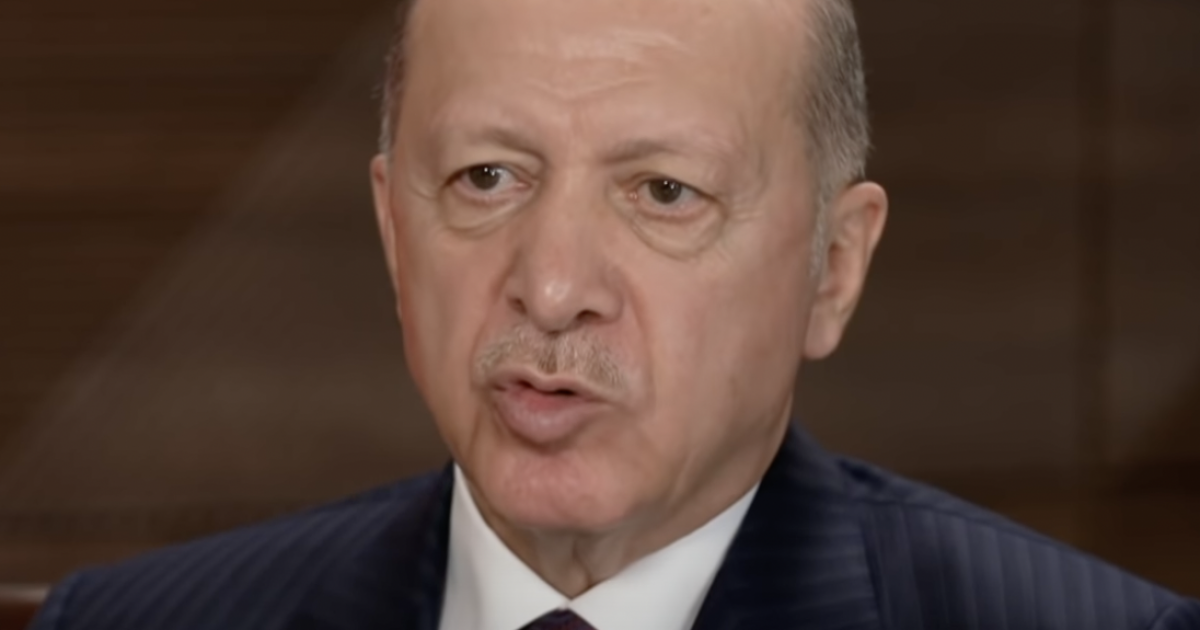
During a CBS interview on September 26, 2021, Turkish President Recep Tayyip Erdogan revealed his desire to buy another battery of Russian S-400 air defense systems. Erdogan previously signed on a deal to acquire the S-400 system in 2017, obviously angering the U.S. Turkey, a member of the North Atlantic Treaty Organization (NATO), was punished for buying weapons systems from Russia — a staunch NATO rival— through sanctions the Trump administration imposed on it in 2020.
On repeated occasions, Biden administration officials criticized Turkey’s prior dealing with Russia on weapons system transfers, which Pentagon spokesman John Kirby believes “provides Russia revenue, access and influence.”
During the interview, Erdogan reaffirmed his desire to purchase additional Russian anti-air defense systems. Erdogan alluded to Turkey being barred from receiving F-35 jets by the Trump administration in 2019 as a motivation for his desire to continue buying defense systems from Russia.
When CBS News’ chief foreign affairs correspondent Margaret Brennan pressed the Turkish leader on whether he’ll continue buying Russian missile defense systems, Erdogan responded, “In the future, nobody will be able to interfere in terms of what kind of defense systems we acquire, from which country, at what level.”
Erdogan’s blunt words will likely lead to a continued deterioration of American-Turkish relations, especially if Turkey follows through with further purchases of defense systems from Russia.
On the campaign trail, Joe Biden had promised to get tough on Erdogan and even called him an “autocrat.”
In the past decade, Erdogan has taken Turkey on numerous military adventures such as backing the Government of National Accord (GNA) in the Second Libyan Civil War, invading northern Syria, butting heads with Greece over natural gas deposits in the Eastern Mediterranean, and backing Azerbaijan in its conflict with Armenia over the disputed territory of Nagorno-Karabakh.
Turkey has also used soft power in the form of its compelling television dramas to spread its influence, thus provoking several Arab states to issue fatwas in condemnation of these shows. There’s a general fear among Arab states that Turkey is stoking neo-Ottoman sentiments among their populations. Similarly, Turkic Republics In Central Asia have grown weary of Turkey’s cultural penetration within their borders, thereby responding with prohibitions on the use of Turkish-language cartoons in kindergartens in the case of Turkmenistan. Many foreign policy experts speculate that Turkey’s occasional moves towards Central Asia represent an effort to cultivate a pan-Turkic consciousness.
Many people will describe Erdogan’s behavior on the foreign policy stage as erratic, but from a historical standpoint, there’s a method to his madness. Turkish grand strategy consists of hedging between great powers in order to extract as many benefits as possible and forge ahead with an independent foreign policy.
It goes without saying that the U.S. should cut Turkey off and let it do its own thing in the Middle East. The region is no longer of strategic importance to the U.S. and it should not try to meddle in the region any further. On top of that, the U.S. should not take the John Bolton approach when it comes to destabilizing Turkey.
In all likelihood, Turkey will be checked by the emerging Eurasian bloc of countries that will lay out their own rules and maintain a degree of equilibrium within this part of the world. The U.S. will not need to get its hands dirty in this area and should focus more on shoring up its domestic affairs and protecting its borders.



